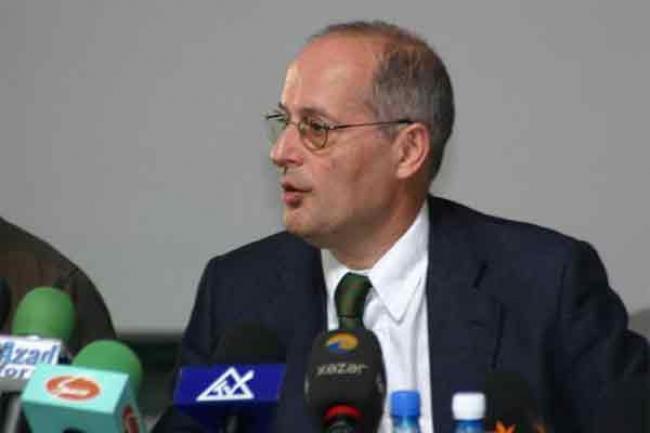Just Earth News 16 Sep 2016

OSCE/Ilgar Hasanov
“The smooth-looking conduct of parliamentary elections in Belarus on 11 September 2016 should not eclipse the underlying systemic violations. The elections proved a clear lack of political will to promote and protect human rights in Belarus,” the Special Rapporteur on the situation of human rights in Belarus, Miklós Haraszti, said in a news release issued by the Office of the UN High Commissioner for Human Rights (OHCHR).
He commended the absence of violence so far, and welcomed the elections of one member of an opposition party and one independent cultural activist, after two decades of total absence of any opposition in parliament.
“However, citizens’ right to a free and fair election continued to be abused in the grip of entrenched repressive laws and institutions, just as in previous parliamentary or presidential elections,” he said.
He said he has heard reports of intimidation, fraud, manipulation and opacity. Especially egregious is the growth in fictitiously claimed turnout during the non-transparent early voting, a four-day process based on coercion of army conscripts, students, and State clerks.
According to the news release, the election observation mission sent by the Office for Democratic Institutions and Human Rights of the Organisation for the Security and Cooperation in Europe (OSCE-ODIHR) had to state that “the composition of election commissions was not pluralistic, which undermined confidence in their independence.”
In preliminary conclusions, the European observers noted that “early voting, counting and tabulation procedures were still marred by a significant number of procedural irregularities and a lack of transparency.”
Even the election of the opposition candidate exhibited the fully guided character of the electoral process, the news release said. The welcome entry to parliament of the UCB party candidate Hanna Kanapatskaya made her a victim of a cynical ploy at the same time, given that her admittance defeated the country’s most visible opposition politician, Tatyana Korotkevich of the ‘Tell the Truth’ movement. Korotkevich had made her fame by running against the incumbent in the presidential election in 2015.
Well documented reports allege post-factum adjustments of the results of the two opposition politicians, using the leeway provided by a threefold magnification of the turnout, the release said.
The Special Rapporteur pointed out that the ‘victory’ of Kanapatskaya came at a moment when, for foreign policy reasons, some concessions to the voters’ will seem inevitable. The manoeuvre served to show that the system of Government-decided results has not changed, despite the allowance granted for an opposition candidate. The move also aimed at sowing discord among the opposition parties, he added.
“It is regrettable that Belarus did not take into account real changes towards equal media access, verifiable turnout, honest vote count, and a pluralistic parliament,” the expert said. “These changes have been recommended for many years by the OSCE, and my own reports.”
Special Rapporteurs and independent experts are appointed by the Geneva-based UN Human Rights Council to examine and report back on a specific human rights theme or a country situation. The positions are honorary and the experts are not UN staff, nor are they paid for their work.